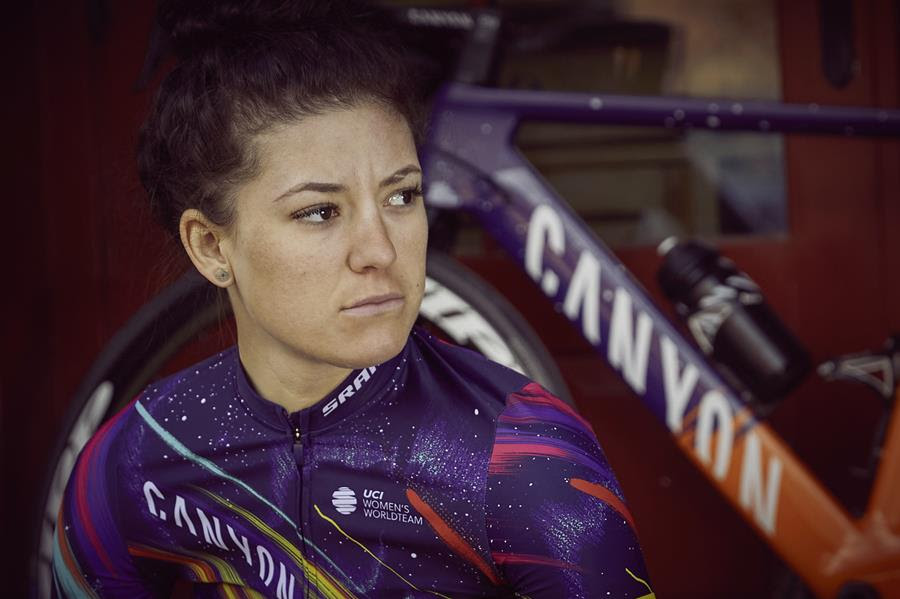Chloe Dygert undergoes surgery to treat tachycardia
American already back on the bike following operation

Chloé Dygert has undergone surgery to treat supraventricular tachycardia (SVT), a condition which causes episodes where the heart beats much faster than usual.
The North American rider revealed the information in a post on Instagram accompanied by video clips of herself lying in a hospital bed.
"My SVT was annoying but not life-threatening, (as long as I stopped immediately if I was training)," Dygert, who is set to embark on her third season with Canyon-Sram next year, wrote.
"My most recent episode happened while I was out on an easy basic endurance ride, my heart rate peaked at 219, then sat at 205 for five minutes and 195 for another ten minutes.
"It would jump between 180 to 205 in the remainder of the episode lasting 35 minutes. I stopped and sat on the side of the road to wait for my heart rate to slow back down below 150."
Dygert explained that she had been suffering from the condition for nearly a decade, though the frequency of the SVT episodes had increased in recent months.
"It started for the first time back in 2015, only happening once or twice a year until this year," she wrote of the condition, which is rarely life-threatening but may cause a cardiac arrest or unconsciousness.
The latest race content, interviews, features, reviews and expert buying guides, direct to your inbox!
"But just the past two months it has triggered five times. My fear is having one during a race and needing to stop so we made the decision to go in and get it fixed with the frequency increase."
Dygert has endured a hard two years after suffering a brutal crash during the Road World Championships time trial in 2020. She was away from racing for nine months following the devastating knee injury suffered after colliding with a guard rail during the Imola time trial.
Last year she took part in the Olympic Games road race and time trial, though her 2022 season was once again ruined thanks to a bout of the Epstein-Barr virus.
Her SVT surgery seems to only be a minor blip in her recovery, however, as Dygert revealed that she is already back on the bike and training.
"I was awake and lightly sedated during the procedure," she wrote. "Definitely one of the most unique kinds of pains I’ve ever felt. In the recovery, I wasn’t allowed to move for 4 hours, giving the artery time to heal from the catheter ablation.
"I was back on my bike within 5 days after the procedure with only one minor hiccup happening on day 5."
A post shared by Chloé Dygert (@chloedygert)
A photo posted by on

Dani Ostanek is Senior News Writer at Cyclingnews, having joined in 2017 as a freelance contributor and later being hired full-time. Before joining the team, she had written for numerous major publications in the cycling world, including Cycling Weekly and Rouleur.